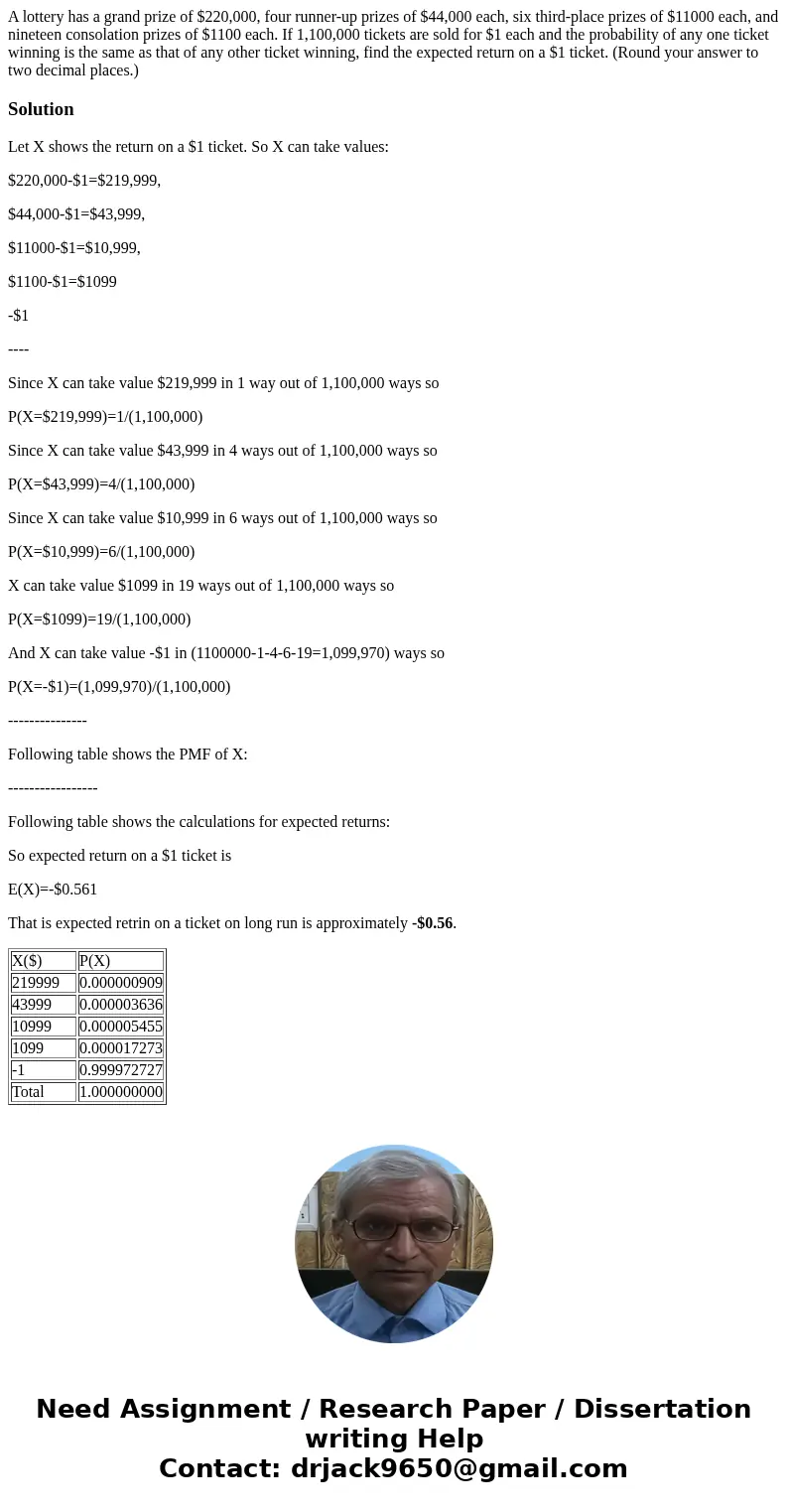A lottery has a grand prize of 220000 four runnerup prizes o
A lottery has a grand prize of $220,000, four runner-up prizes of $44,000 each, six third-place prizes of $11000 each, and nineteen consolation prizes of $1100 each. If 1,100,000 tickets are sold for $1 each and the probability of any one ticket winning is the same as that of any other ticket winning, find the expected return on a $1 ticket. (Round your answer to two decimal places.)
Solution
Let X shows the return on a $1 ticket. So X can take values:
$220,000-$1=$219,999,
$44,000-$1=$43,999,
$11000-$1=$10,999,
$1100-$1=$1099
-$1
----
Since X can take value $219,999 in 1 way out of 1,100,000 ways so
P(X=$219,999)=1/(1,100,000)
Since X can take value $43,999 in 4 ways out of 1,100,000 ways so
P(X=$43,999)=4/(1,100,000)
Since X can take value $10,999 in 6 ways out of 1,100,000 ways so
P(X=$10,999)=6/(1,100,000)
X can take value $1099 in 19 ways out of 1,100,000 ways so
P(X=$1099)=19/(1,100,000)
And X can take value -$1 in (1100000-1-4-6-19=1,099,970) ways so
P(X=-$1)=(1,099,970)/(1,100,000)
---------------
Following table shows the PMF of X:
-----------------
Following table shows the calculations for expected returns:
So expected return on a $1 ticket is
E(X)=-$0.561
That is expected retrin on a ticket on long run is approximately -$0.56.
| X($) | P(X) |
| 219999 | 0.000000909 |
| 43999 | 0.000003636 |
| 10999 | 0.000005455 |
| 1099 | 0.000017273 |
| -1 | 0.999972727 |
| Total | 1.000000000 |

 Homework Sourse
Homework Sourse